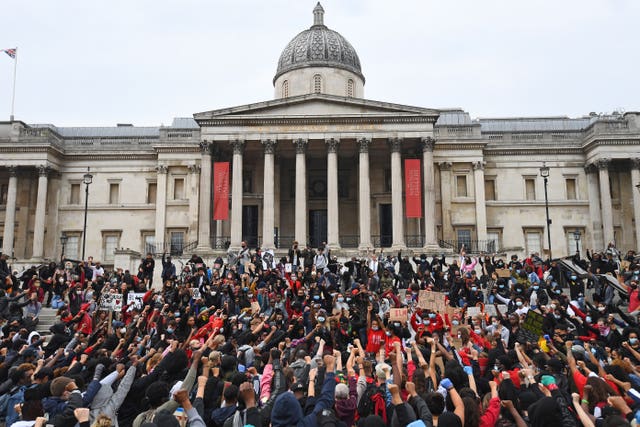The Government-backed review of racial disparities in Britain has been criticised for being culturally deaf, out of step with public opinion and “steeped in denial”.
The landmark report, commissioned in the wake of the Black Lives Matter movement, said Britain is no longer a country where the “system is deliberately rigged against ethnic minorities”, and said there was no evidence of “institutional racism”.
But its findings have been described as insulting and divisive, and the chairman of the review has been accused of putting a “positive spin on slavery and empire” when explaining its recommendation on teaching history in schools.
It also criticised the “confusing” way the term “institutional racism” has been applied, saying this should only be used when deep-seated, systemic racism is proved and not as a “catch-all” phrase for any microaggression.
The report proposes a Making Of Modern Britain teaching resource to “tell the multiple, nuanced stories of the contributions made by different groups that have made this country the one it is today”.

He wrote that the resource should look at the influence of the UK during its empire period and how “Britishness influenced the Commonwealth” and how local communities influenced “modern Britain”.
He added: “There is a new story about the Caribbean experience which speaks to the slave period not only being about profit and suffering but how culturally African people transformed themselves into a remodelled African/Britain.”
Highlighting the passage on Twitter, Labour’s shadow women and equalities secretary Marsha de Cordova said it was “one of the worst bits” of the report.
She tweeted: “Putting a positive spin on slavery and empire.
“Published on a Government website in 2021. Is this for real?”
Halima Begum, chief executive of race equality think tank the Runnymede Trust, said: “Comments about the slave trade being a Caribbean experience, as though it’s some kind of holiday… this is how deafening it is, cultural deafness, it’s completely out of kilter with where British society is I believe.”
Former equality and human rights commissioner Lord Simon Woolley described the review as a “monumental moment missed” following the death of George Floyd in the US last year and subsequent Black Lives Matter protests.

“Actually, this report isn’t for African, Asian, Caribbean and other ethnic minority communities, it isn’t for us. It’s not for our consumption.
“They have a different audience, an audience which is probably white working class, middle England, that wants to tell them that because we focus on Black Lives Matter and the issues raised from the devastating impact that Covid has had on our communities and the hundreds of thousands of people that protested on the streets, never mind about that, if we focus on you, we might win your votes.
“I think it is reprehensible to position the heartache, the tragedy that we have had to endure, to find a few grubby votes that say our attention’s towards you and not to them.”
Labour said the report was a “divisive polemic” which has insulted people by downplaying institutional racism, while unions said the report was “deeply cynical” and denied the experiences of black and minority ethnic workers.
Former Equality and Human Rights Commission chairman David Isaac said a focus on whether there is institutional racism is a “distraction”, and the report’s recommendations are “sensible”, but that major inequalities still need to be addressed.






